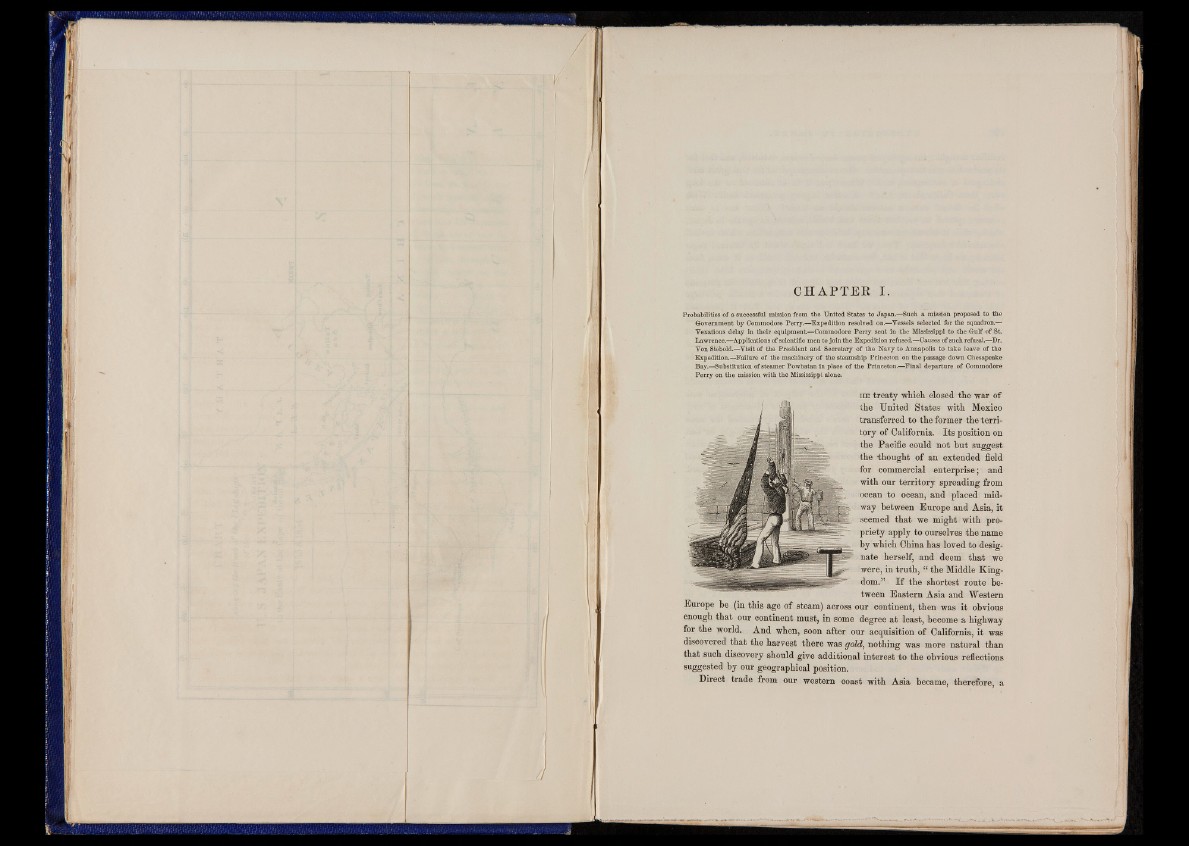
CHAPTER I.
Probabilities of a successful mission from the United States to Japan.—Such a mission proposed to the
Government by Commodore Perry.—Expedition resolved on.—Vessels selected for the squadron.—
Vexatious delay in their equipment.—Commodore Perry sent in the Mississippi to the Gulf of St.
Lawrence.—Applications of sciontiflc men to join the Expedition refused.—Causes of such refhsal.—Dr.
Yon Siebold.—Visit of the President and Secretary of the Navy to Annapolis to take leave of the
Expedition.—Failure of the machinery o f the steamship Princeton on the passage down Chesapeake
Bay.—Substitution of steamer Powhatan in place of the Princeton.—Final departure of Commodore
Perry on the mission with the Mississippi alone.
iie treaty which closed the war of
the United States with Mexico
transferred to the former the territory
of California. Its position on
the Pacific could not hut suggest
the thought of an extended field
for commercial enterprise; and
with our territory spreading from
ocean to ocean, and placed midway
between Europe and Asia, it
seemed that we might with propriety
apply to ourselves the name
by which China has loved to designate
herself, and deem that we
were, in truth, u the Middle Kingdom.”
I f the shortest route between
Eastern Asia and Western
Europe be (in this age of steam) across our continent, then was it obvious
enough that our continent must, in some degree at least, become a highway
for the world. And when, soon after our acquisition of California, it was
discovered that the harvest there was gold, nothing was more natural than
that such discovery should give additional interest to the obvious reflections
suggested by our geographical position.
Direct trade from our western coast with Asia became, therefore, a